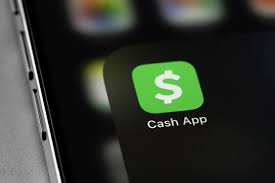Mobile Phones Driving Partnerships Between Telecom Companies and Digital Banks

The Role of Mobile Phones in Telco and Digital Bank Partnerships
The increasing penetration of mobile phones across global markets is blurring the lines between telecommunications and financial services. This convergence is primarily driven by digital banks and neobanks expanding into mobile payments and communications, while telecom companies are increasingly venturing into financial services. At the heart of this transformation is the smartphone, which serves as a gateway to a myriad of digital activities and services.
The Convergence of Telecom and Finance
As of the end of 2022, PYMNTS Intelligence highlighted a significant trend where collaborations between FinTechs, financial institutions (FIs), and telecommunications companies were enhancing financial inclusion across both emerging and developed economies. The smartphone's role as a pivotal access point is underscored by PYMNTS surveys, which reveal that over a quarter of individuals express interest in banking services offered by telecom firms.
The report "How the World Does Digital: A Global Benchmark of Consumer Digital Transformation," published by PYMNTS Intelligence, underscores the widespread infrastructure of digital banking and telecommunications. The study, which spanned 11 countries, found that most populations have access to and actively use mobile phones. According to the Global System for Mobile Communications Association, 4.3 billion people globally own smartphones, yet there remains a significant opportunity to reach the remaining 3.4 billion people.
Cross-Selling Opportunities and Market Penetration
Delving deeper into the data, Brazil emerges as a noteworthy example, representing the most digitally connected country in the study. Brazilians average 361 "activity days" online annually, surpassing the overall sample average of 281 days. Mobile banking is particularly prevalent, with 63% of Brazilian consumers engaging with it weekly.
Nu Holdings, the parent company of digital bank Nubank, exemplifies the potential of cross-sector partnerships. In a recent earnings report, Nubank announced a 22% increase in its customer base, positioning it as the third-largest financial institution in Brazil. The company also achieved a 91% growth in its customer base in Mexico. Additionally, Nubank has expanded its offerings with the launch of NuCel, a mobile phone service in Brazil designed to enhance customer experience and diversify beyond traditional financial services. By 2025, NuCel customers will have access to a savings feature with yields of 120% on deposited amounts, highlighting the synergy between mobile services and financial products.
In another strategic move, Lyca Mobile has integrated Revolut Pay into its payment systems, allowing for automated payments of subscriptions and bills. The partnership indicates that most Lyca customers using Revolut have opted for the automatic top-up feature, showcasing the appeal of seamless financial transactions.
Earlier this month, Verizon announced a long-term partnership with Santander's U.S. digital banking platform, Openbank. This collaboration offers Verizon's mobile and 5G customers access to a high-yield savings account on the Openbank platform. The Verizon + Openbank Savings Account provides a rate 10 times the national average and allows customers to save up to $180 annually on their Verizon bills. This partnership enriches Verizon's financial services portfolio and provides added benefits to customers.
Verizon further enhances customer engagement through its Visa rewards card, enabling users to earn "Verizon Dollars" on everyday spending categories, with rewards reaching up to 4%.
Conclusion
The integration of mobile phones into telco and digital bank partnerships is reshaping the landscape of both industries. The smartphone serves as a pivotal tool in bridging the gap between telecommunications and financial services, enabling innovative cross-selling opportunities and enhancing consumer experiences. As market players like Nubank and Verizon continue to forge strategic partnerships, the potential to unlock untapped markets and foster financial inclusion becomes increasingly tangible. The future of this convergence promises a seamless blend of communication and financial services, ultimately benefiting consumers worldwide.










































